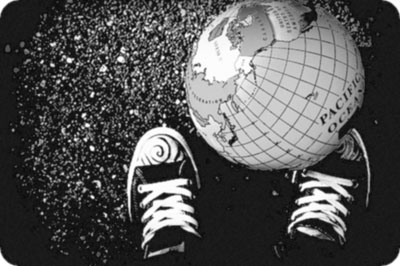All Nonfiction
- Bullying
- Books
- Academic
- Author Interviews
- Celebrity interviews
- College Articles
- College Essays
- Educator of the Year
- Heroes
- Interviews
- Memoir
- Personal Experience
- Sports
- Travel & Culture
All Opinions
- Bullying
- Current Events / Politics
- Discrimination
- Drugs / Alcohol / Smoking
- Entertainment / Celebrities
- Environment
- Love / Relationships
- Movies / Music / TV
- Pop Culture / Trends
- School / College
- Social Issues / Civics
- Spirituality / Religion
- Sports / Hobbies
All Hot Topics
- Bullying
- Community Service
- Environment
- Health
- Letters to the Editor
- Pride & Prejudice
- What Matters
- Back
Summer Guide
- Program Links
- Program Reviews
- Back
College Guide
- College Links
- College Reviews
- College Essays
- College Articles
- Back
The Media’s Role in the Olympics, The World Cup, and Beyond
The 2014 Winter Olympics were intended to be the panacea that Russia’s international presence desperately needed. Instead, several stories about the seemingly ignored poverty and squalor in the southern Russian city and Vladimir Putin’s 51 billion dollar splurge, (the biggest in Olympic history), made headlines, turning a judging global eye toward Russia.
President Obama refused to attend the Games, and celebrities like Lady Gaga demanded that the Sochi Games be boycotted due to recent legislation concerning the LGBT community. Olympian Johnny Quinn, a bobsledder for Team U.S.A., was locked in a bathroom and had to resort to smashing the door open to escape. A Twitter account named “Sochi Problems” emerged, making light of the concerns facing the 2014 Winter Olympics.
Now in June, Brazil is facing a similar problem: The FIFA World Cup has brought hordes of people into the streets, protesting against the Cup and the government. Police officers beat down civilians with sticks, throwing shocker grenades toward unsuspecting crowds. What originally started as objections against rising transportation costs has manifested into a huge uproar that has, like Sochi, caught worldwide attention.
What is even more remarkable is that protests have even been taking place. Brazil is arguably one of the most football obsessed countries in the world – companies often give employees time off to watch the Brazil football team compete. Brazilian football icon Pelé has been called several times “the greatest football player in the world”. The fact that the protests have grown to such large numbers and attracted so much fervor speaks volumes on the level of the issues bombarding the country.
Both the upcoming 2014 World Cup and the 2014 Winter Games share one similar quality: copious amounts of money and effort were put into making sure both were perfect. A reported 1,000 American football fields of fake snow were made in Sochi, the warmest area of cold, icy Russia. Brazil spent an estimated 14-16 billion US dollars on this Cup, as expensive as the last three Cups in South Africa, Germany, and Japan/South Korea combined.
It seems as if Putin was using this Olympics as to reclaim Russia’s position as a world power, and to display himself as a powerful, dominating leader. The games were no doubt supposed to distract the rest of the world from the problems plaguing Russia. Similarly, Brazil’s president Dilma Rousseff had been hoping to use the World Cup to please the disgruntled population, claiming that the massive amount of spending was for Brazilians.
The hopes of both presidents crumbled just like the quality of lives in their respective countries. A quick skim on CNN or CBC, or any other news heavyweight, around winter found thousands of stories on the corruption and destitution in Sochi. The documentary, Contra a Copa, by international news channel VICE News, has brought the protests against the Cup into the spotlight.
A new question is now brought forth: why didn’t these expensive, carefully planned strategies work? The answer is the simple constant that has been discovering hidden truths for centuries: the media.
Of course, it would be false to say that nobody would notice the injustice in both Russia and Brazil without the media’s influence, but the magnitude in which such inequity was noticed was directly related to the press.
It is irrefutably known that it is the media’s job to report on the current events occurring in the world. But the role of the media in both the World Cup and the Winter Olympics is so much more influential than just simple reporting. By showing us the horrors brought upon by the government in regions of the world, the media shifts our sphere of concern from a national perspective to a global perspective.
For this reason alone, the world forever indebted to the media. Would the fall of the Berlin Wall be as significant to the global view on communism if there were not cameras recording David Hasselhoff interviewing young Germans who were about to experience freedom? Would the massacre at Sandy Hook sparked a conversation on gun control in the world’s most gun obsessed country without the reports by several news channels reaching thousands of US televisions?
No. And for that the world is grateful.

